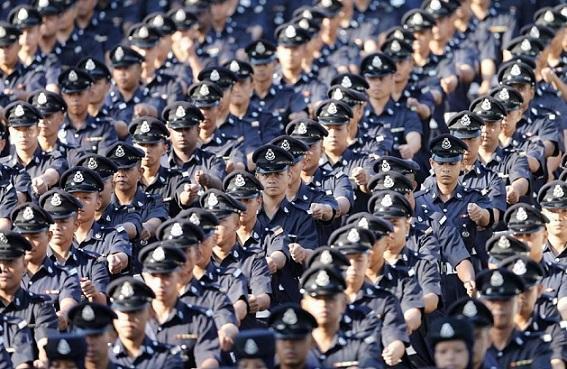This article was first published on fz.com.
The recent spike in violent crimes in the country has reignited calls for a review of the Royal Malaysian Police (PDRM) and the establishment of the Independent Police Complaints and Misconduct Commission (IPCMC).
These crimes range from smash-and-grabs at traffic stops (it seems hardly a day goes by without seeing a personal account of this sort of crime on our Facebook or Twitter feeds), burglaries, a brazen break-in of a Malaysian minister’s home, to a series of violent shootings in the country (such as the recent attempted murder of the chairman of Malaysian Crime Watch Task Force, R Sri Sanjeevan and murder of the founder of the Arab-Malaysian Banking Group, Hussain Ahmad Najadi).
I don’t recall such a time in the country’s history of having such a drastic rise in crime, with public confidence in the integrity and competencies of the Malaysian law enforcement agencies at an all-time low. I think it’s time that we as a nation take the conversation on the establishment of IPCMC seriously.
My proposal to the newly-elected members of the government is that we need a series of open discussions or the infamous PEMANDU labs where stakeholders including top level officials in the police force and members of the public can each present their case with regards to the IPCMC and the move towards an accountable and transparent police force.
I understand the challenges faced by a large police force such as the PDRM, but law enforcement agencies in the 21st century must be robust and efficient in meeting the demand for national safety and security, whilst raising public confidence in the integrity and competencies of the force.
However, there are a few things that will be a stumbling block in a nation’s effort to move towards introducing and implementing such a broad and wide-ranging reform.
First of all, the politicking from both the ruling party, Barisan Nasional (BN) and the opposition party, Pakatan Rakyat (PR) has to stop. Leave your petty politics and blood-thirst for power out of this, because unless the system is fully reformed to allow for an independent, accountable and transparent police force to flourish, crime will continue to rise and none of these problems will ever be solved, regardless of which party forms the next federal government.
Sure, the 13th general election has revealed how, in the words of independent observer and economic think tank IDEAS, the election is only “partially free and not fair”. However, the 14th general election is less than 5 years away, and I hope that the elected government will take this period to really push through the reforms that they have promised, and the opposition will play its role as a good opposition to hold the government accountable in Parliament and make sure that this happens.
At the same time when politicians are beating on each other in the public sphere, the Malaysian public seems to be totally disconnected from the reality and the severity of the problems.
Disillusioned with political rhetoric, supporters of the respective parties no longer look at issues from a distance that allows them to effectively evaluate and engage with issues. That blood-thirst for power has caused some very bright people, many of whom that I know personally, to take positions that are clearly intellectually dishonest, feigning ignorance. Some have even gone so far as to demand for the reintroduction of the now-abolished Internal Security Act (ISA) and Emergency Ordinance (EO), which allowed for arbitrary detention without trial of suspects, when the police felt they did not have enough evidence to prosecute in courts.
Arbitrary detention without having the suspects be produced before the courts and tried is unconstitutional. We must not allow ourselves to sink to such low levels to justify such a drastic surrender of our civil liberties to the powers that be (regardless of who they are).
There is a clear disconnect in logic for people to think that arbitrary detention laws such as the ISA and EO will somehow grant the police more “tools” to combat crime and to lock-up criminals that are supposedly committing these crimes.
Without an independent, accountable and transparent police force, such powers can and will be abused for political purposes and we will see return to the days of political dissidents being locked up for not bending to the will of the authorities.
Past BN governments have abused these privileges that citizens of this nation have granted them and after decades of litigation and unceasing campaigning, the EO and ISA have been abolished. What is to say that, if PR ever find themselves forming the federal government, the same laws will not be used to quell political dissent, justified using political rhetoric and glib tongue?
We have seen how intolerant certain state governments are when it comes to media freedom, issuing gag-orders to dissenting members of their own parties. I therefore think it is more important for such holes in the system to be plugged, and not to allow illiberal laws to creep back into our society.
Nothing can ever justify the surrender of our civil liberties. That is why we need an accountable and transparent police force in this country.

